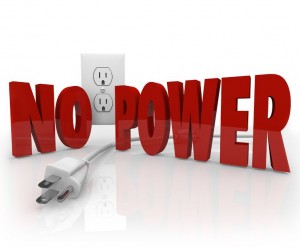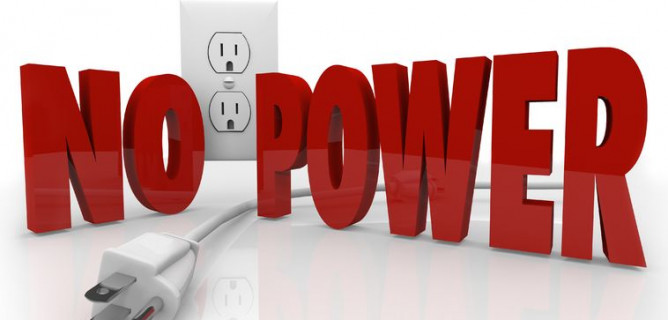 Despite increases in their frequency and severity, many people who have never experienced a power outage still view outages as merely inconvenient. But they are more than inconvenient; they leave homeowners unable to live life as normal. Research shows that in any given month millions of Americans could be without power, with or without a major storm.
Despite increases in their frequency and severity, many people who have never experienced a power outage still view outages as merely inconvenient. But they are more than inconvenient; they leave homeowners unable to live life as normal. Research shows that in any given month millions of Americans could be without power, with or without a major storm.
Beyond disrupting everyday life, a power outage lasting just a day or two could cost a homeowner several thousand dollars.
Extended power outages can impact your checkbook in many ways:
Lost refrigerated and frozen goods. The USDA recommends throwing away refrigerated foods stored for more than two hours at over 40 degrees Fahrenheit, because refrigerators and freezers can’t stay cold without electricity. For a family with a full-stocked freezer and fridge, that means a loss of at least $200 in tossed food.
Damage to your home. Without power, sump pumps can’t run, putting homes at risk for flooding, and fans and dehumidifiers can’t operate to help dry out a wet basement. A power outage during a severe storm can destroy basements and pose significant hazards to homeowners. Basic costs to pump out and thoroughly dry a basement lightly flooded with clean water can start between $500-$1,500 and increase to $2,000-$10,000. But a flooded basement can be prevented, even during the most severe storms, with a home backup generator.
Expenses from staying at a hotel or eating out. If you don’t have heat or running water, you might have to move the family into a hotel for a night or two. Add restaurant tabs to that and you’ve lost another couple hundred dollars.
Additional costs for short-term goods. If you choose to remain in your home, you will need to invest in batteries for radios and flashlights, coolers to store food, and ice to keep that food cold. Incidental costs can range from $200 to $500.
Loss of income. Depending upon the impact on your home and family, you might have to spend a few days away from work. If you work from home, you stand to potentially lose your entire income during a power outage.
Having an automatic home backup power system can help to avoid these costs, and other costs, related to power outages.
A few essential precautions you should take in preparation for severe weather is to stock up on items, like food and water, and make necessary fixes, like boarding windows. Listen to a NOAA battery-operated weather radio for critical information from the National Weather Service. Also, avoid using electrical equipment and telephones. You should use battery powered TVs and radios instead.
Source: www.generac.com
Follow Us on Facebook – Twitter – LinkedIn– Google Plus


